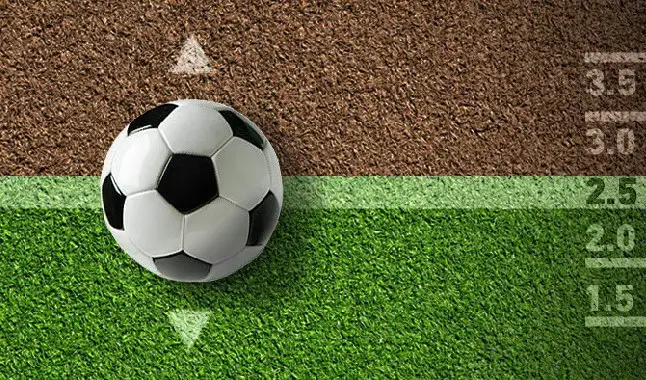
Improving in any sport requires dedication, consistent practice, and a strategic approach that balances physical conditioning with mental preparation. Whether you’re a beginner aiming to build fundamental skills or an advanced player striving to refine your performance, the principles of sports training are broadly similar across disciplines. Here are some effective methods to help you get good at any sport, with an emphasis on skills, mindset, physical conditioning, and strategic development.
1. Master the Basics
Every sport has foundational techniques, whether it’s footwork in soccer, a backhand in tennis, or dribbling in basketball. Mastering these core skills is essential for progress in any sport. Beginners should focus on fundamental movements and techniques rather than jumping into advanced moves. For example:
- In soccer, learning how to control the ball and pass accurately will be more beneficial in the long run than trying advanced tricks.
- In basketball, practicing dribbling, shooting form, and defensive posture will set you up for more complex play.
Consistent, focused practice of basic techniques ensures that as you advance, you’ll have a strong foundation to build upon. Don’t rush this phase developing accuracy and muscle memory takes time, but it’s the bedrock of proficiency in any sport.
2. Create a Consistent Practice Routine
Improvement requires regular practice. Establishing a structured schedule that dedicates time to different aspects of the sport will maximize your progress. A consistent routine helps you develop muscle memory and stamina, both of which are critical in sports.
Your routine should include:
- Skill Drills: Break down your sport into specific skills and drills. For example, if you’re training for tennis, dedicate time to practicing serves, backhands, and volleys.
- Repetition: Repeatedly practicing certain movements makes them automatic over time, which is vital in competitive situations where quick reactions are required.
- Progressive Difficulty: As you improve, increase the difficulty or intensity of your drills. Add speed, introduce new challenges, or move from solo practice to working with partners or competing with opponents.
A routine that builds on itself over time is one of the most powerful tools for becoming proficient at any sport.
3. Prioritize Physical Conditioning
Sports performance depends heavily on your physical fitness, which includes strength, endurance, flexibility, and coordination. Many sports require specialized physical conditioning, but there are general areas everyone should focus on:
- Strength Training: Building core strength and endurance through exercises like squats, lunges, and push-ups will improve power and reduce the risk of injuries.
- Cardiovascular Conditioning: Whether it’s running, swimming, or cycling, a strong cardiovascular system allows you to sustain energy for longer and recover faster.
- Flexibility and Mobility: Stretching exercises and flexibility training are essential to enhance movement range, prevent injuries, and improve agility.
- Sport-Specific Exercises: For example, if you play a jumping-intensive sport like basketball, plyometric exercises (like box jumps) can help improve your jumping ability.
A strong, conditioned body enables you to perform at your best and withstand the physical demands of practice and competition.
4. Focus on Mental Toughness and Strategy
Mental preparation is crucial in sports, especially when competing under pressure. Developing mental toughness can improve performance by allowing you to stay calm, focused, and resilient in high-stakes situations. Here’s how:
- Visualization: Spend time visualizing yourself performing well in specific situations. Visualizing success helps build confidence, reduces anxiety, and strengthens your brain’s ability to coordinate movements.
- Goal Setting: Set both short- and long-term goals. Short-term goals, like mastering a new skill or improving speed, can be motivating and tangible. Long-term goals, like making the varsity team or competing at higher levels, give direction and purpose to your training.
- Learning from Failure: Every loss or mistake is an opportunity to improve. Reflecting on areas of weakness and working on them helps you grow as an athlete. Instead of being discouraged by setbacks, see them as part of your development.
Sports are as much mental as they are physical, so nurturing focus, resilience, and a positive mindset is critical for any athlete.
5. Study the Game and Learn from Others
Understanding the strategic aspects of your sport helps you anticipate your opponents’ moves and make informed decisions during games. Here’s how you can do it:
- Watch Professional Games: Observing professional athletes and studying their tactics, movements, and decision-making can offer insights that you can incorporate into your own play.
- Analyze Your Own Performance: Record and review your practice sessions or games to identify strengths and areas for improvement.
- Learn from Coaches and Teammates: Coaches can provide personalized advice and feedback, helping you avoid common mistakes and improve faster. Teammates and peers can also offer valuable insights and encouragement.
Learning from experienced players and coaches can provide perspectives that may not be immediately obvious, helping you grow faster as a player.
6. Engage in Cross-Training
Cross-training, or participating in different types of exercise or sports, can enhance your overall athleticism. For example:
- Balance and Agility Training: Sports like yoga, gymnastics, or dance improve balance, flexibility, and body control.
- Hand-Eye Coordination: Sports such as table tennis, racquetball, and baseball can help improve your reflexes and hand-eye coordination.
- Endurance and Strength: Swimming, biking, and running build stamina and cardiovascular health, which are essential in most sports.
Cross-training allows you to develop a well-rounded fitness base, reduce the risk of overuse injuries, and keep your workouts interesting.
7. Listen to Your Body and Prevent Injuries
Avoiding injury is just as important as improving skills. An injury can set back months of progress, so prioritize recovery and injury prevention.
- Warm-Up and Cool Down: A thorough warm-up increases blood flow to muscles, reducing the risk of strains. A cool-down session after practice helps reduce muscle stiffness.
- Rest Days: Rest days allow your body to recover from intense workouts, prevent burnout, and avoid overuse injuries.
- Seek Professional Help When Needed: If you experience persistent pain or discomfort, consult a medical professional to address potential issues before they escalate.
Taking care of your body through proper recovery and preventive care will keep you active and progressing over the long term.
8. Stay Consistent and Patient
Getting good at any sport requires dedication and patience. Skills take time to develop, and progress can sometimes feel slow. Remember that every athlete improves at their own pace, and comparing your progress to others can be discouraging.
Consistency in practice, maintaining a positive attitude, and a willingness to learn from both successes and failures are key to achieving proficiency in any sport.
Conclusion
Becoming proficient in any sport involves mastering the basics, establishing a regular practice routine, building physical fitness, focusing on mental resilience, and seeking knowledge from experienced players. With dedication, patience, and a balanced approach, you can improve in any sport and enjoy the rewards that come from hard work and perseverance.


